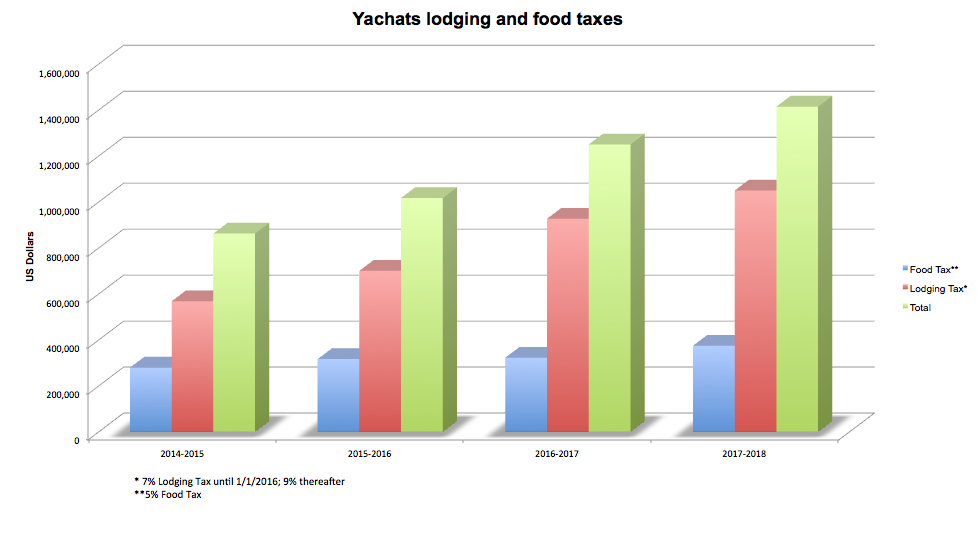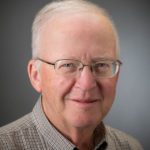
By QUINTON SMITH/YachatsNews.com
The Yachats City Council on Wednesday tabled it’s proposal to increase the city’s lodging tax, instead planning to form a committee of businesses and community members to determine goals for the $1 million it collects annually.
The council had proposed raising its tax by from 9 percent to 10 percent. Coupled with the state’s 1.8 percent lodging tax, a visitor paying for a Yachats motel room or vacation rental would add 11.8 percent onto their bill. For now it will remain a total of 10.8 percent.
During the 2017-18 fiscal year, the city collected $1.04 million in lodging taxes and another $375,000 from its 5 percent tax on sales of prepared food and beverages.
The proposed increase was opposed by most of the city’s motel owners and vacation rental managers during a hearing last month. They argued the city was taxing tourists too much and risked pricing them away from Yachats. Because the city is filled with tourists in the summer, they suggested the city could raise the money it wants by helping with efforts to attract more people during the off-season.
But the council’s discussion Wednesday to table the increase also generated a little push-back.
While acknowledging that “many arguments were good,” Councilor James Kerti disagreed with one statement last month that the city-owned Little Log Church was not high on a Trip Advisor ranking of tourist activities. He countered that it was the highest on the list of amenities controlled by the city.
Councilor Jim Tooke said the city’s food and beverage tax – one of only two in Oregon – was the result of a public vote in 2007 and needed to help fund the city’s sewer treatment plant.
“Residents have to pay this too,” he said. “It wasn’t just some arbitrary expense that we just imposed on somebody.”
Councilor Leslie Vaaler wondered if during the current “good times” that it made sense to raise the tax rate in order to build a bigger reserve for when the economy slows.
State law requires the city to spend 30 percent of the first 7 percent of lodging taxes on tourist-related activities and the remainder can go to its general operating fund. Above 7 percent, the portion going to visitor amenities is 70 percent. In total, Yachats spends 40 percent of its lodging tax on tourist amenities and 60 percent goes to general city operations.
But the state rules and guidelines of what is a tourist amenity and what the taxes can and can’t be used for is fairly broad, open to some interpretation and haven’t been tested in court.
Several opponents who testified last month suggested a committee to set clearer goals for the lodging taxes.

On Wednesday, Mayor John Moore took them up on that – asking the council to establish a committee of motel owners and community members to propose goals and to suggest ways to increase off-season tourism.
Drew Roslund, a partner in The Overleaf and Fireside motels and opponent of the tax increase, said Thursday he was pleased with the council’s decision.
He said the city – with the help of the new committee – needs a strategic plan for use of the lodging taxes, to set measurable objectives for projects, and an oversight committee to monitor their use.
Moore also said Wednesday it is time to revitalize the Yachats Chamber of Commerce, which he said was mostly comprised of Drift Inn owner Linda Heltzer. The city budgets $65,000 a year in lodging taxes to pay for Yachats Visitor Center operations, which is overseen by the chamber.
“It’s an ideal opportunity to bring in more businesses and community members,” Moore said.
After some back-and-forth, the council agreed to discuss the makeup of the committee at its April 3 meeting.
“It’s the first time in my 20 years here that the business community has said it’s ready to work with the city,” said Councilor Max Glenn.
In other business Wednesday the council:
- Heard from water plant manager Rick McClung about plans to solve system problems that came to light Dec. 10, 2018 when a fire hydrant failure nearly drained the city’s new 250,000-gallon south water tank and 104,000 gallons from the city’s main tank.
- Took 25 minutes of its 2.5-hour meeting to discuss and debate the minutes from its Feb. 6 and Feb. 20 meetings after Vaaler asked for additions to what the city attorney may have said in a conference call, changes to wording of a nomination to the Public Works and Streets Commission and for other, smaller editing and style changes.



Wow, this quote sure shook me to my timbers. “Because the city is filled with tourists in the summer, they suggested the city could raise the money it wants by helping with efforts to attract more people during the off-season.” It seems this year, the tourists haven’t stopped coming.